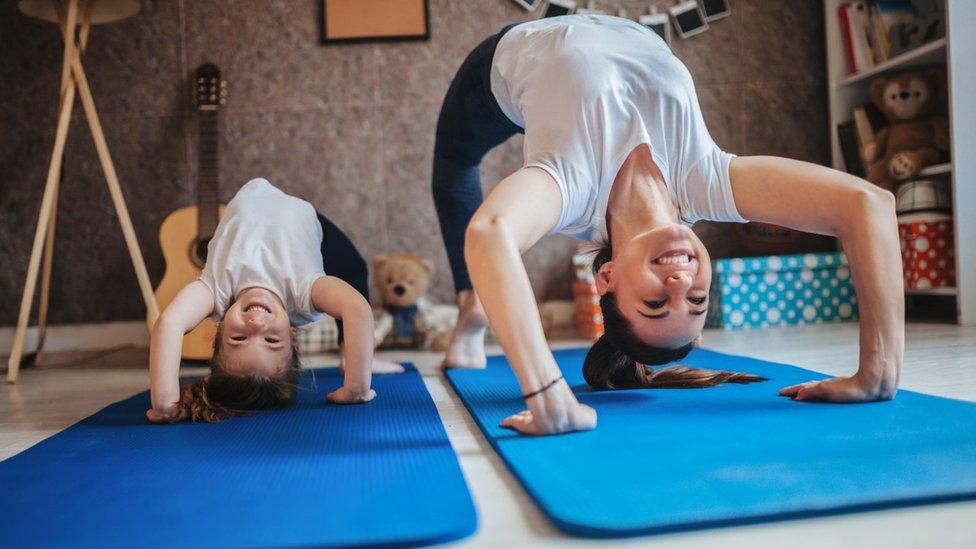Coronavirus: So how did day one of homeschooling go?
- Published
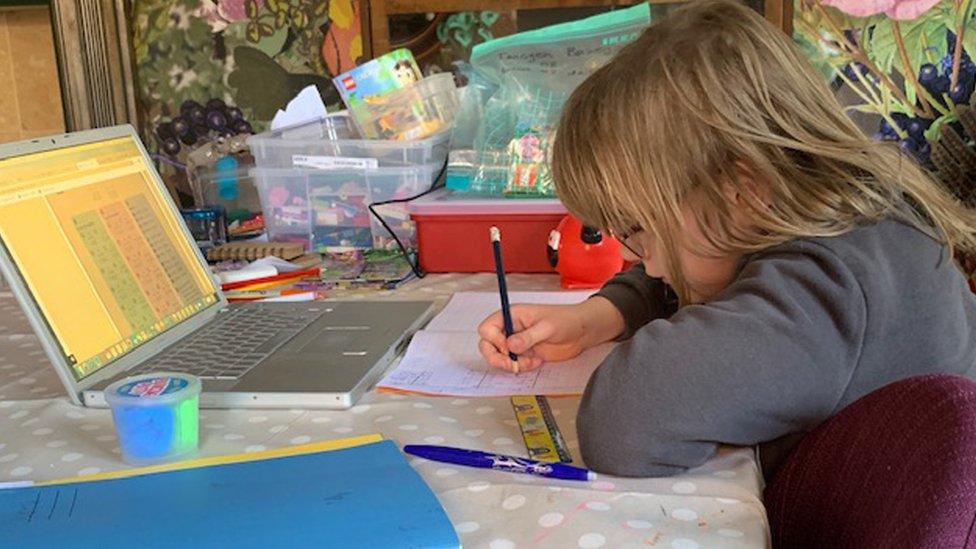
With schools closed to the majority of pupils to try to stop the spread of the coronavirus, parents across the country have been asked to become instant homeschoolers.
How have they coped with their first day of juggling timetables, curricula and coursework - all the while trying to get their own jobs done?
‘It’s about being flexible’
“I’ve kind of done a timetable but I’m not sure how successful that’s going to be – ask me in a few days,” says Bobbie Gordon in Nottingham.
She and her husband - who work in marketing and IT respectively - are trying to be as flexible as possible as they combine work with their new role as homeschoolers to Imogen, 9, Lottie, 6, and four-year-old Hattie.
“We’re just trying to tag-team it,” she says. “It’s about being flexible. We’re just trying to be supportive of each other as well because it is quite difficult for everybody and we’ve both got quite demanding jobs.”
The curriculum involves some schoolwork along with things the parents are keen to share with their kids, whether it’s coding, cooking or teaching them how to use the washing machine.
“It’s life skills stuff,” says Ms Gordon. “Maybe it will help them realise everything that we have to do!”
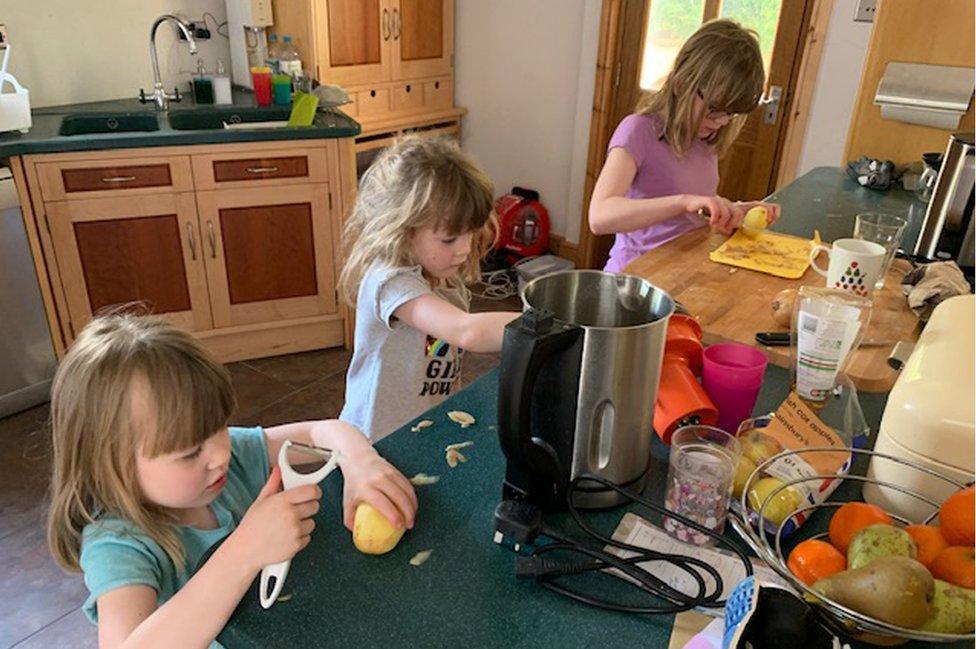
It's been busy, round at the Gordons'
So far on Monday morning, they have done some writing, planted some seeds in the vegetable patch and made soup together.
Ms Gordon says she’s also keen for her kids to keep in touch with friends by video chat, and the eldest has already organised a daily evening video call with her classmates.
“It’s 16 very excitable nine-year-olds running round their houses and playing instruments and things,” she says.
Day one has gone relatively smoothly, says Ms Gordon, with sunshine and a spacious garden playing their part.
“I suspect in a few weeks’ time if it’s horrible, rainy weather and they can’t get outside there will be harder days ahead,” she says.
‘Kids want routine, stability’
For some parents, it’s been all about maintaining a routine.
Joe Wicks, the fitness instructor and TV presenter, attracted more than 800,000 viewers to his YouTube Channel promising a daily 30-minute workout for kids to start the day.
He told BBC Radio 5 Live he wanted to play a part in reassuring kids that “although this is a weird time, everything is going to be fine, it’s going to return to normal and we’ll be reconnected again”.
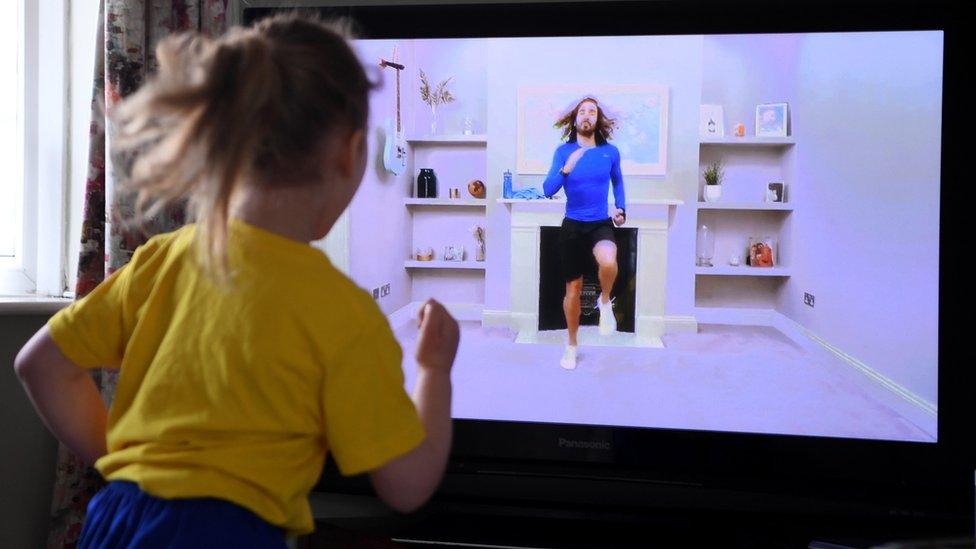
Joe Wicks woke a nation
In St Helens, Catherine Ormesher says her 11-year-old daughter Jessica is also benefitting from sticking to a routine, tackling her maths work on Monday morning just as her school timetable says.
“I’m quite shocked actually,” says Ms Ormesher.
She says her daughter’s school took “a massive weight” off of parents by providing them with materials and log-ins for online learning.
The school suggested that parents wake up their children at the normal time and begin work at 09:00 GMT.
“The kids have been sending WhatsApp messages to tell each other that they’re starting their lessons now. They’re following the timetable and getting one another motivated,” says Ms Ormesher, who is a carer.
“They obviously want the routine and the stability.”
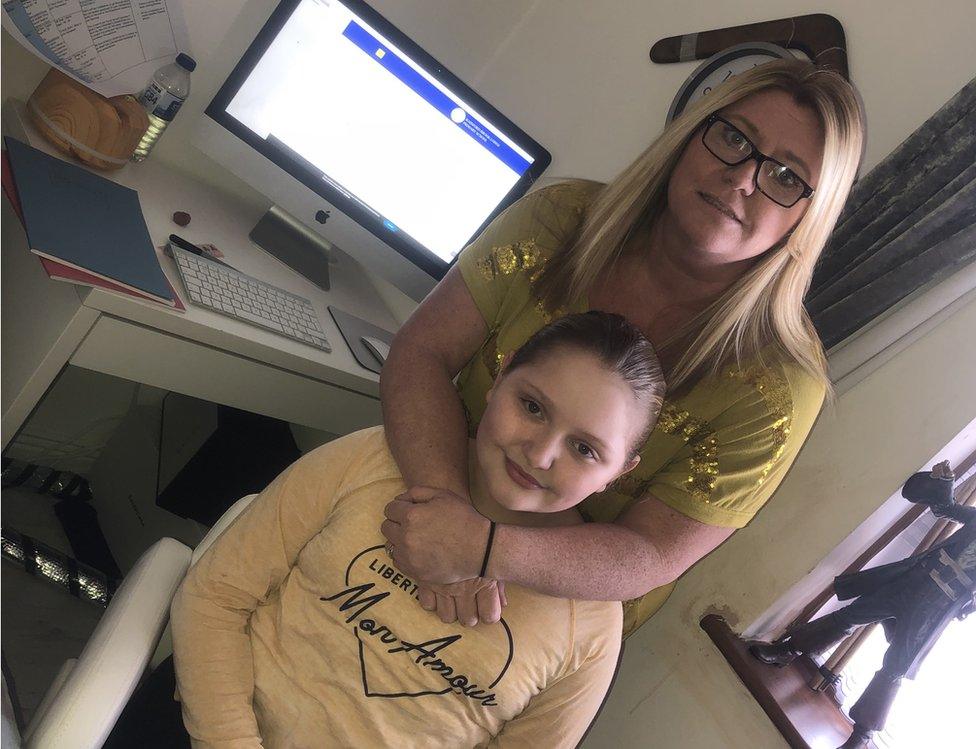
Stability is key
Ms Ormesher said the school’s music teacher started them off with a “wake and shake” – an early morning dance to get kids energised – before a morning of lessons.
At her 11:00 break, Jessica asked Amazon’s Alexa to set a reminder for the start of lessons 20 minutes later.
But her mum says that holding onto the routine may have a special importance for her, as she was in isolation before school closed, having returned from Spain with an illness.
“On Friday a little boy knocked on the door and left all her books and everything from school on our step. When we opened the door and I gave them to Jess, she just broke her heart crying because she hadn’t got to say her goodbyes to her primary school,” she says.
‘We focus on safety, love and fun'
Educational psychologists – such as Zubeida Dasgupta, who is at home in Brighton with her three children – warn that being home for a prolonged period can be difficult and stressful for some children.
Parents may also be stressed and worrying about the health of family members, their finances or food security, she says.
So her approach has been to emphasise that home is not school and she is not a teacher.
“We have decided to focus on safety, love and fun, with a little bit of learning where the children are showing interest,” she says.
One child is very motivated and organised, she says, working through tasks set by school, helping his younger sister and following his interests in skills such as coding.
The others are getting more guidance in activities such as gardening or recording music on the computer. The youngest has volunteered to practise spelling and times tables.
“I think we are all experiencing a feeling of loss of control at the moment, so doing activities where your children can be involved in planning and making decisions - and also succeeding - may help them feel a bit more in control,” Ms Dasgupta says.
“If we can support our children through this, it may well end up being a positive experience. They may develop some resilience and discover new found interests and skills.”

A SIMPLE GUIDE: What are the symptoms?
AVOIDING CONTACT: Should I self-isolate?
LOOK-UP TOOL: Check cases in your area
MAPS AND CHARTS: Visual guide to the outbreak

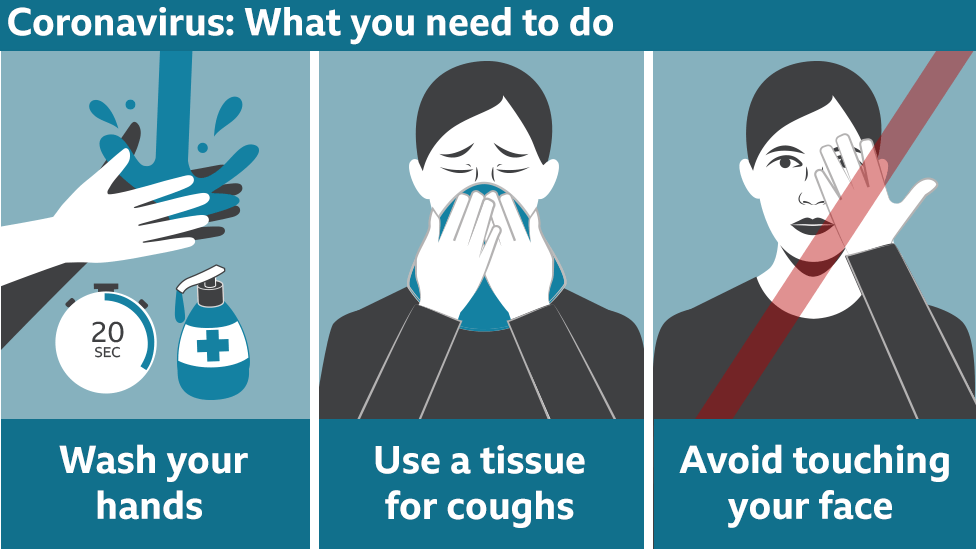
- Published17 March 2020
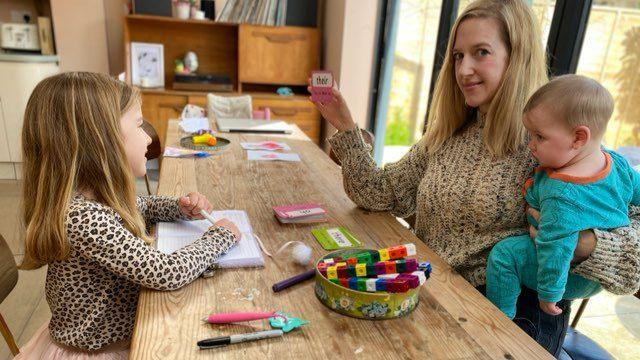
- Published21 March 2020
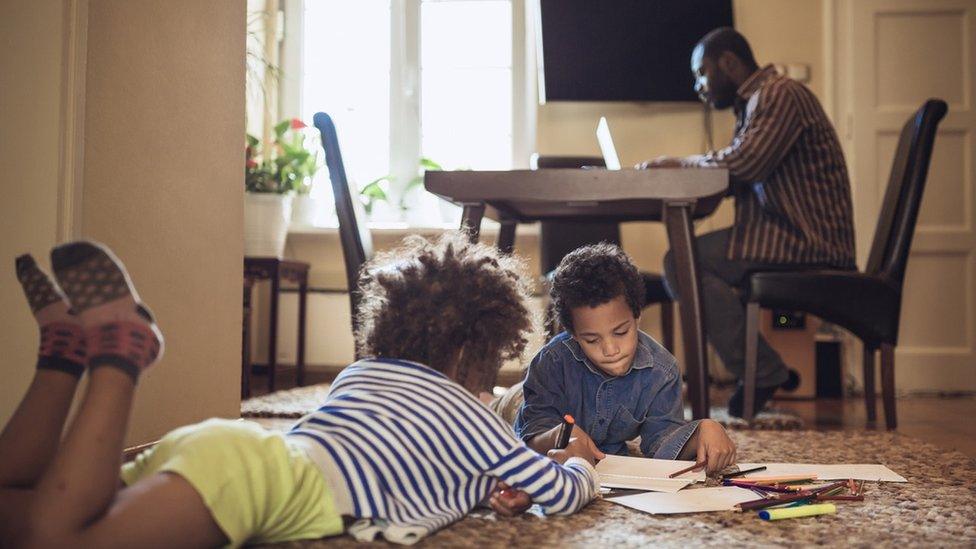
- Published20 March 2020
